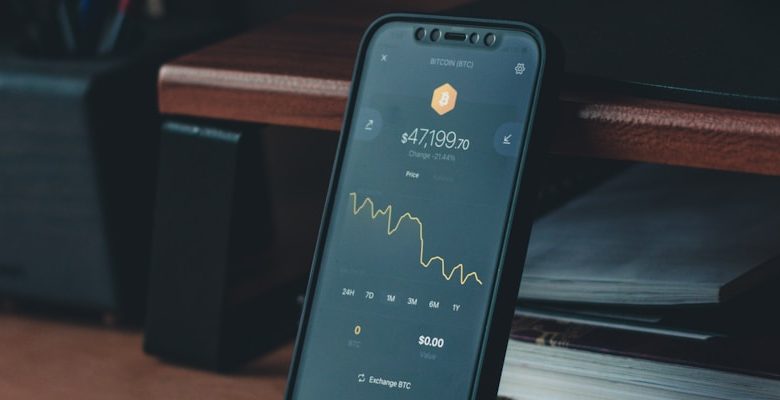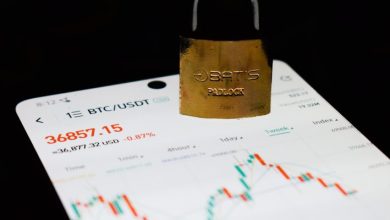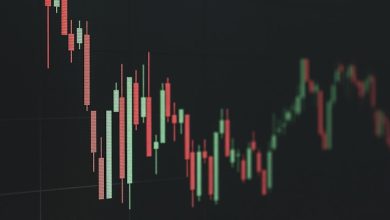Using Blockchain to Fight Against Counterfeit Goods

- Understanding the impact of counterfeit goods on the economy
- Exploring the current challenges in detecting counterfeit products
- How blockchain technology can revolutionize the fight against fake goods
- Case studies of successful implementations of blockchain in combating counterfeits
- The role of smart contracts in ensuring authenticity and traceability
- Collaborative efforts between industries and governments to eradicate counterfeit goods
Understanding the impact of counterfeit goods on the economy
Counterfeit goods have a significant impact on the economy, leading to lost revenues for legitimate businesses and governments alike. The production and sale of fake products not only deprive companies of their rightful profits but also result in job losses and reduced tax revenues for governments. Additionally, counterfeit goods can have serious health and safety implications for consumers who unknowingly purchase substandard or harmful products.
Moreover, the presence of counterfeit goods in the market distorts competition, as dishonest vendors undercut prices to attract customers, leading to a decrease in market share for genuine businesses. This unfair competition hinders innovation and investment in research and development, ultimately stifling economic growth. The negative effects of counterfeit goods on the economy are far-reaching and multifaceted, making it crucial to address this issue effectively.
Blockchain technology offers a promising solution to combat the proliferation of counterfeit goods. By leveraging the decentralized and transparent nature of blockchain, it is possible to create a secure and immutable record of the origin and movement of products throughout the supply chain. This enables consumers to verify the authenticity of goods and trace their origins back to the source, thereby reducing the risk of purchasing counterfeit products.
In addition to enhancing consumer trust and safety, blockchain technology can also help businesses and governments crack down on counterfeiters by providing irrefutable evidence of fraudulent activities. By implementing blockchain-based solutions, stakeholders can work together to create a more secure and efficient supply chain that protects both consumers and businesses from the detrimental effects of counterfeit goods. Ultimately, leveraging blockchain technology to fight against counterfeit goods can help safeguard the economy and promote fair competition in the marketplace.
Exploring the current challenges in detecting counterfeit products
One of the biggest challenges in the fight against counterfeit products is the difficulty in detecting them. Counterfeiters have become increasingly sophisticated in replicating genuine products, making it hard for consumers and authorities to distinguish between real and fake items. This poses a serious threat to both businesses and consumers, as counterfeit goods can be harmful and of inferior quality.
Traditional methods of detecting counterfeit products, such as physical inspections and holograms, are no longer sufficient in today’s digital age. Counterfeiters have found ways to bypass these security measures, making it imperative for companies to explore new technologies to combat this growing issue. The lack of a centralized database to track and verify products also contributes to the challenges in detecting counterfeit goods.
Blockchain technology offers a promising solution to these challenges by providing a secure and transparent platform for tracking and verifying products. By creating a decentralized ledger that records every transaction and product movement, blockchain can help in establishing the authenticity of goods and detecting any unauthorized alterations. This not only helps in combating counterfeit products but also improves supply chain transparency and efficiency.
How blockchain technology can revolutionize the fight against fake goods
Blockchain technology has the potential to significantly impact the fight against counterfeit goods. By providing a secure and transparent way to track the origin and movement of products, blockchain can revolutionize the supply chain industry. This innovation can help in verifying the authenticity of products, preventing the circulation of fake goods in the market.
One of the key advantages of blockchain technology is its ability to create a tamper-proof record of transactions. Each step in the supply chain can be recorded on the blockchain, making it nearly impossible for counterfeiters to alter the information. This transparency ensures that consumers can trust the products they are purchasing, knowing they are not counterfeit.
Furthermore, blockchain technology can enable consumers to trace the journey of a product from its creation to its sale. This level of transparency can help in identifying any discrepancies or unauthorized resellers in the supply chain. By leveraging blockchain, companies can build trust with their customers and protect their brand reputation from being associated with counterfeit goods.
Overall, the implementation of blockchain technology in the fight against fake goods can lead to a more secure and reliable supply chain ecosystem. This technology has the potential to disrupt the counterfeit market and protect consumers from purchasing fake products. As businesses continue to adopt blockchain solutions, the battle against counterfeit goods will be taken to a whole new level.
Case studies of successful implementations of blockchain in combating counterfeits
Several case studies have demonstrated the effectiveness of utilizing blockchain technology in the fight against counterfeit products. One such example is the partnership between Louis Vuitton and Microsoft to develop a blockchain-based system that allows consumers to verify the authenticity of luxury goods. By scanning a QR code on the product, customers can access information stored on the blockchain, ensuring they are purchasing a genuine item.
Another successful implementation of blockchain in combating counterfeits is seen in the pharmaceutical industry. Companies like Pfizer and Merck are using blockchain to track the entire supply chain of medications, from production to distribution. This transparency not only helps in preventing the circulation of fake drugs but also ensures the safety and quality of the products reaching consumers.
Furthermore, the food industry has also benefited from blockchain technology in the fight against counterfeit goods. Walmart, for instance, has implemented a blockchain system to track the origins of its produce, allowing for quick identification of contaminated or fraudulent products. This not only protects consumers from consuming harmful items but also strengthens the trust between the brand and its customers.
The role of smart contracts in ensuring authenticity and traceability
Smart contracts play a crucial role in ensuring the authenticity and traceability of products in the fight against counterfeit goods. By leveraging blockchain technology, smart contracts can be used to create a tamper-proof record of a product’s journey from the manufacturer to the consumer.
These contracts are self-executing agreements with the terms of the agreement directly written into the code. This ensures that all transactions are secure and transparent, eliminating the need for intermediaries and reducing the risk of fraud.
Through the use of smart contracts, consumers can verify the authenticity of a product by scanning a QR code or RFID tag, which will provide them with all the information about the product’s origin, manufacturing process, and distribution chain.
Furthermore, smart contracts can also be used to track the movement of goods throughout the supply chain, making it easier to identify any discrepancies or suspicious activities. This level of transparency can help authorities crack down on counterfeiters and protect consumers from purchasing fake products.
In conclusion, smart contracts are a powerful tool in the fight against counterfeit goods, providing a secure and transparent way to ensure the authenticity and traceability of products. By leveraging blockchain technology, businesses and consumers can work together to combat the growing threat of counterfeit products in the market.
Collaborative efforts between industries and governments to eradicate counterfeit goods
Collaborative efforts between industries and governments are crucial in the fight against counterfeit goods. By working together, they can share information, resources, and expertise to develop effective strategies to combat this global issue. Governments can enact and enforce regulations to penalize counterfeiters, while industries can implement technologies like blockchain to track and verify the authenticity of products.



